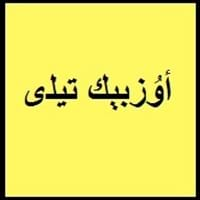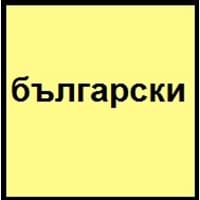Countries
Turkey, Uzbekistan
Bulgaria, European Union
National Language
Afganistan, China, Kazakhstan, Kyrgyzstan, Russia, Tajikistan, Turkmenistan, Uzbekistan
Bulgaria
Second Language
Not spoken in any of the countries
Not spoken in any of the countries
Speaking Continents
Middle East
Africa, Europe
Minority Language
Not spoken in any of the countries
Hungary, Romania, Serbia, Slovakia, Ukraine
Regulated By
Not Available
Institute for the Bulgarian language
Interesting Facts
- Uzbek is officially written in the Latin script, but many people still use Cyrillic script.
- In Uzbek language, there are many loanwords from Russian, Arabic and Persian.
- The only Slavic language which has lost all its grammatical cases is Bulgarian.
- The first Slavic language to be written was Bulgarian in 9th century.
Similar To
Kazakh and Uyghur Languages
Macedonian language
Derived From
Not Available
Not Available
Alphabets in
Uzbek-Alphabets.jpg#200
Bulgarian-Alphabets.jpg#200
Scripts
Arabic, Cyrillic, Latin
Cyrillic
Writing Direction
Not Available
Left-To-Right, Horizontal
Hello
Salom
Здравейте (Zdraveĭte)
Thank You
Rakhmat
Благодаря ти (blagodarya ti)
How Are You?
Qalay siz?
Как си? (Kak si?)
Good Night
Hayirli tun
Лека нощ (Leka nošt)
Good Evening
Hayirli kech
Добър вечер (Dobãr večer)
Good Afternoon
Hayirli kun
Добър ден (Dobãr den)
Good Morning
Hayirli tong
Добро утро (Dobro utro)
Please
Iltimos
Моля (Molja)
Sorry
Kechiring!
Съжалявам (Sãžaljavam)
Bye
Xayr
Довиждане (Doviždane)
I Love You
Sizni sevaman
Обичам те (Običam te)
Excuse Me
Iltimos! Menga qarang
Извинете ме (Izvinete me)
Dialect 1
Tashkent
Kotel-Elena-Dryanovo
Where They Speak
Not Available
Bulgaria
Dialect 2
Afghan
Panagyurishte
Where They Speak
Not Available
Bulgaria
Dialect 3
Ferghana
Pirdop
Where They Speak
Not Available
Bulgaria
Speaking Population
Not Available
Native Name
أۇزبېك ﺗﻴﻠی o'zbek tili ўзбек тили (o‘zbek tili)
български (bãlgarski)
Alternative Names
Annamese, Ching, Gin, Jing, Kinh, Viet
Balgarski
French Name
ouszbek
bulgare
German Name
Usbekisch
Bulgarisch
Pronunciation
Not Available
Not Available
Ethnicity
Uzbek
Not Available
Origin
9th–12th centuries AD
9th Century
Language Family
Turkic Family
Indo-European Family
Branch
Southestern(Chagatai)
Southern
Early Forms
Chagatay
Old Bulgarian, Middle Bulgarian, Modern Bulgarian
Standard Forms
Uzbek
Standard Bulgarian
Signed Forms
Not Available
Bulgarian Sign Language
Scope
Macrolanguage
Individual
ISO 639 6
Not Available
buls
Glottocode
uzbe1247
bulg1262
Linguasphere
No data available
53-AAA-hb
Language Type
Living
Living
Language Linguistic Typology
Not Available
Subject-Verb-Object
Language Morphological Typology
Not Available
Not Available
All Uzbek and Bulgarian Dialects
Most languages have dialects where each dialect differ from other dialect with respect to grammar and vocabulary. Here you will get to know all Uzbek and Bulgarian dialects. Various dialects of Uzbek and Bulgarian language differ in their pronunciations and words. Dialects of Uzbek are spoken in different Uzbek Speaking Countries whereas Bulgarian Dialects are spoken in different Bulgarian speaking countries. Also the number of people speaking Uzbek vs Bulgarian Dialects varies from few thousands to many millions. Some of the Uzbek dialects include: Tashkent, Afghan. Bulgarian dialects include: Kotel-Elena-Dryanovo , Panagyurishte. Also learn about dialects in South American Languages and North American Languages.
Uzbek and Bulgarian Speaking population
Uzbek and Bulgarian speaking population is one of the factors based on which Uzbek and Bulgarian languages can be compared. The total count of Uzbek and Bulgarian Speaking population in percentage is also given. The percentage of people speaking Uzbek language is 0.39 % whereas the percentage of people speaking Bulgarian language is Not Available. When we compare the speaking population of any two languages we get to know which of two languages is more popular. Find more details about how many people speak Uzbek and Bulgarian on Uzbek vs Bulgarian where you will get native speakers, speaking population in percentage and native names.
Uzbek and Bulgarian Language Codes
Uzbek and Bulgarian language codes are used in those applications where using language names are tedious. Uzbek and Bulgarian Language Codes include all the international language codes, glottocodes and linguasphere.





